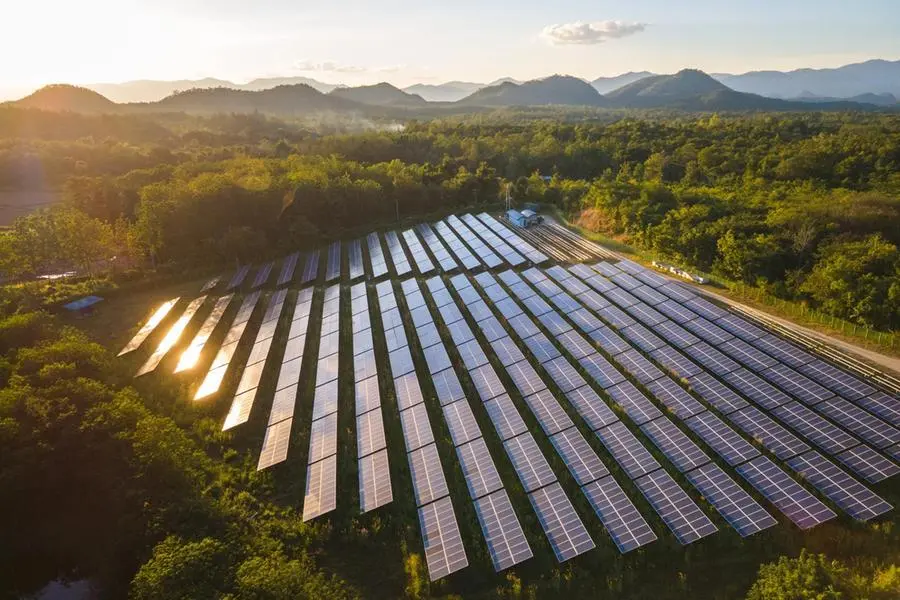PHOTO
Members of a global organisation concerned with agriculture development and food sufficiency in Africa, the Africa’s Green Store Network (AGSN) in partnership with the Agricultural and Rural Management Training Institute (ARMTI), Kwara state have called for adoption of small scale solar irrigation system to tackle effect of climate change and encourage food sufficiency in the continent.
The members of the group, holding a five-day training conference at the ARMTI headquarters, Ilorin between September 9 and 13, 2024, are drawn from 15 African countries and Europe.
The participants came from such countries as Nigeria, Benin, Algeria, Cameroon, Italy, Germany, Mozambique, Burkina Faso, Senegal, Ethiopia, Malawi, Kenya, Mali, Togo, and Cote d’Ivoire, while other agencies involved include Humboldt Universitat, Zuberlin, Germany, SLE and GIZ.
Speaking during the opening ceremony on Tuesday, the executive director of the ARMTI, Dr. Olufemi Oladunni, emphasised the need to get knowledge of the solar irrigation system technology down to local farmers.
Oladunni, who said that irrigation network would have to be improved upon in Africa, added that people in the Southern Nigeria used to believe that irrigation should be in the North, “but now we can see here in the South that there’s drought which lasted about eight weeks. And we know the implications.”
The ARMTI boss said that climate change is a major challenge of food security in Africa, aside insecurity, adding, “that’s why we’re thinking of agro ecology all the time. And natural resources are being depleted by the day. What natural resources were supporting in those days cannot be supported again unless we have to enhance the issue of building up our natural resource base. That’s why we’re getting ourselves together in Africa so that we can be food sufficient and be able to export.”
He said that the group is concerned with agriculture, food security, and how to step up food production through irrigation system in order to avoid food shortage and be food sufficient in Africa.
“At the end of the conference, we are building a network for us to share initiative, ideas, information to be able to develop food and produce better food in Africa. That’s the overall aim.”
In his presentation, titled, Water and Energy: Efficient Solar Irrigation Systems in Africa, by Professor John Olaoye of the department of Agricultural and Biosystems Engineering, University of Ilorin, said that solar-powered irrigation system is the key to ways to tackle climate change.
“That’s the technology we must bring to the fore and allow our small scale farmers to take advantage of. It will also give the local farmers the control over what they’re doing and have control over effect of climate change we’re talking about.
“We need to bring the technology down in simple means so that rural farmers would know how to take advantage of irrigation in order to supplement insufficient moisture for the crop. This could be done in many ways. One major way is to get water flowing under pressure and allow it to discharge into the field. However, the issue of energy is the concern.”
Also talking on the topic; Challenges of Irrigation Issues and Systems in Africa, Professor John Jiya Musa of the department of Agricultural and Bioresources Engineering, Federal University of Technology, Minna, Niger state, said that adaptation of the solar powered irrigation technology has to do with government policies.
“Government policies should embrace capacity building and how to disseminate capacity building to the grassroots.”
Professor Olaoye also said that government policies has to do with technology transfer, adding that foreign technology should be married together with local technology which farmers had known and were familiar with.
“Local farmers may not adapt well with only foreign technology before the season expires. We should look at all these as a nation to get the best of the best from agricultural produce. I tell people that what we have in resources as a nation is enough to feed Africa. But the management processes are what we don’t have. Thus, we misplace our priority. Government should work with researchers to build the nation together.”
Copyright © 2022 Nigerian Tribune Provided by SyndiGate Media Inc. (Syndigate.info).




















